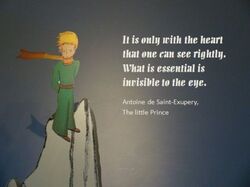We see the world the way we are. This means: our experiences influence how we perceive reality. In order to orientate ourselves and to navigate through life we categorise experiences and outcomes and label them. We form opinions and beliefs that shape our perception. Growing up in a certain environment, being treated a certain way, our education, work experiences, etc etc – all contribute to the assortment of labels and all shape our worldview. And then there are the experiences from our ancestors stored in our cellular memory and energy field as well as collective experiences that influence us as part of a culture, nation, community. Understanding this helps us to understand why our neighbour might see the world so completely different from us – incomprehensible to us. Understanding this might also give us the ability to not instantly defend our worldview, opinion, belief, and rather take the time to leave it aside and try to feel into “the other” perspective – with an open heart and mind.

Dismissing the perspective and worldview of others, not respecting and acknowledging differences has and always will lead to division, conflict, domination, exploitation, abuse. Only when we embrace the reality that we have different stories and experiences and are willing to respect and honour each other nevertheless, we will stop recreating trauma and abusing each “other”. In order to do this, we need to make a conscious effort to develop empathy and the ability to feel.
As a first step, observe yourself while deeply listening and taking in “opposing” or triggering views: are there any emotions (e.g. frustration, anger or fear) coming up within you? Take note of them, but don’t allow yourself to slip into your own emotional flow, as its current will carry you away from the other person/group/topic – and you will miss the chance of deep understanding, learning and togetherness.
Try and stay focused on the emotions expressed by the other person/group/topic. Try to feel them.
Don’t reply or react instantly! Stay with the other person/group/topic, until you feel where they are coming from. You don’t have to agree or disagree. This is not about wrong and right, good and bad. It is about developing and growing your empathetic capacity.
If you are reading something, take the great opportunity for a “buffered” and safe learning process, as you don't have a direct "other" near you. Allow yourself to pause when you feel triggered. Observe what comes up for you – usually anger, frustration, fear – and take a moment to look deeper into these emotions. What makes you angry? What are you afraid of?
If you can, write things down – wildly and uncensored! You can also speak it aloud and record it. Just get things off your chest. However, refrain from writing it directly to the “other” person/group! Just write it down for yourself – until you feel you have “unloaded” it all. The outcome and insights you can gain through this process might surprise you – try it!
In a second step, read the triggering words again. This time, your only goal and focus is to tune in and feel and understand the “other” perspective. Catch yourself whenever you start to slip into your own emotional flow, and bring your attention and awareness back to the “other” person/group/topic – until you can “walk in their shoes” or at least see where they are coming from.
Labels such as racism, sexism and many other –isms are consequences of deep intergenerational and personal trauma. May humans develop the ability of all-true-ism, embracing and feeling the essential truth and value of all life expressions.
As a first step, observe yourself while deeply listening and taking in “opposing” or triggering views: are there any emotions (e.g. frustration, anger or fear) coming up within you? Take note of them, but don’t allow yourself to slip into your own emotional flow, as its current will carry you away from the other person/group/topic – and you will miss the chance of deep understanding, learning and togetherness.
Try and stay focused on the emotions expressed by the other person/group/topic. Try to feel them.
Don’t reply or react instantly! Stay with the other person/group/topic, until you feel where they are coming from. You don’t have to agree or disagree. This is not about wrong and right, good and bad. It is about developing and growing your empathetic capacity.
If you are reading something, take the great opportunity for a “buffered” and safe learning process, as you don't have a direct "other" near you. Allow yourself to pause when you feel triggered. Observe what comes up for you – usually anger, frustration, fear – and take a moment to look deeper into these emotions. What makes you angry? What are you afraid of?
If you can, write things down – wildly and uncensored! You can also speak it aloud and record it. Just get things off your chest. However, refrain from writing it directly to the “other” person/group! Just write it down for yourself – until you feel you have “unloaded” it all. The outcome and insights you can gain through this process might surprise you – try it!
In a second step, read the triggering words again. This time, your only goal and focus is to tune in and feel and understand the “other” perspective. Catch yourself whenever you start to slip into your own emotional flow, and bring your attention and awareness back to the “other” person/group/topic – until you can “walk in their shoes” or at least see where they are coming from.
Labels such as racism, sexism and many other –isms are consequences of deep intergenerational and personal trauma. May humans develop the ability of all-true-ism, embracing and feeling the essential truth and value of all life expressions.

 RSS Feed
RSS Feed